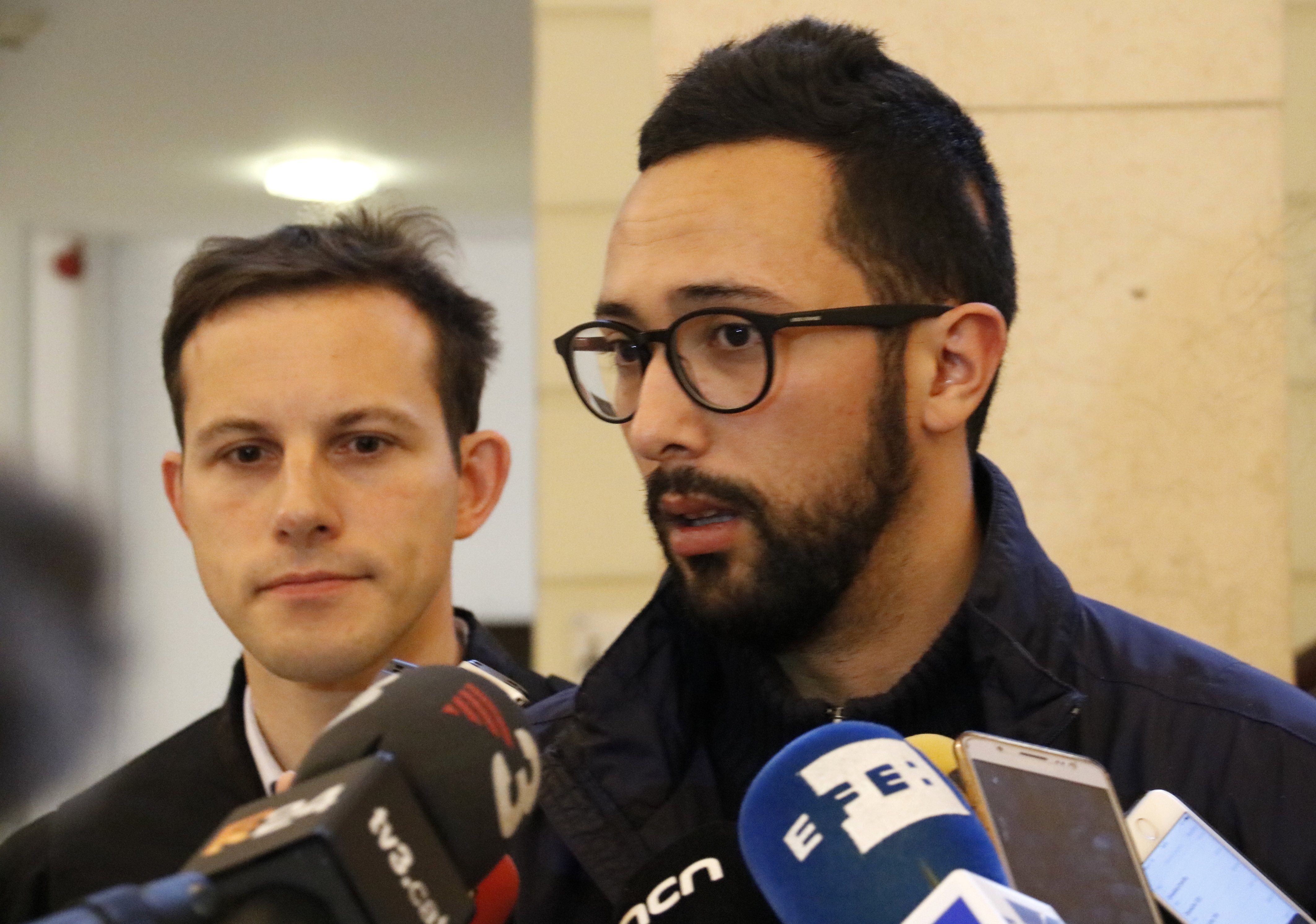An advocate general from the Court of Justice of the European Union, Michal Bobek, has argued that Spain cannot claim the extradition of Josep Miquel Arenas, a rapper who performs as Valtònyc, based on a harsher version of the penal code introduced after the events he was tried over.
Valtònyc was sentenced to three and a half years in prison for a song he released in 2012 on charges including glorifying terrorism, insulting the crown and threats, two years of which was for the first crime. The maximum sentence for that charge was increased in 2015 to three years. Before he went to prison, he decided to leave into exile in Belgium.
Spain has since been pursuing his extradition from Belgium. In its European Arrest Warrant (EAW), however, it cited the three-year maximum for the charge, which would be long enough to dispense with the requirement to verify double criminality, in other words, that the events in question constitute a crime in Belgian law too.
In his opinion in response to a question on this from a Belgian court, Bobek proposes that the law to be taken into account to dispense with checking dual criminality should be that which "is applicable in the issuing Member State to the specific criminal offence(s) to which the EAW relates". In other words, in Valtònyc's case, that would be the pre-2015 statute.
The Czech judge argues this position would offer a "simple, clear and foreseeable legal framework". He suggests, however, the "potential and only exception [would be] subsequent amendments more favourable to the accused". He also notes that the case before him does not deal with "whether the offence of ‘glorification of terrorism and humiliation of
the victims of terrorism’ can automatically be subsumed under ‘terrorism’", another requirement for the avoidance of checking double criminality.
As in the recent case relating to Oriol Junqueras, an advocate general's opinion is not binding on the Court of Justice's final decision, although they do tend to coincide. That decision will also be only one of the considerations for the court in Ghent when it makes its decision on the requested extradition. The court of first instance rejected his extradition in September 2018. The decision in Ghent will be open to appeal for a second time.
Today the advocate general of the CJEU in Luxembourg released his opinion in the Valtonyc Case, supporting our point of view. Spain should not bend the rules in its pursuit of extradition. Another step closer to non-extradition. @EU_Commission @Valtonyc
— Simon Bekaert (@Simonbekaert) 26 de novembre de 2019
Valtònyc's lawyer, Simon Bekaert, celebrated today's opinion in a tweet. He wrote: "Spain should not bend the rules in its pursuit of extradition. Another step closer to non-extradition."

